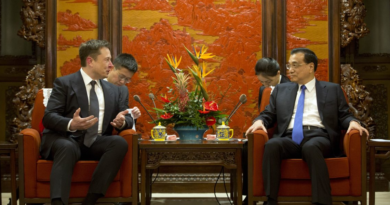EV laggard Toyota says its next-gen EVs will have over 600 miles range
Toyota plans to introduce a high-performance lithium-ion battery to its next-generation electric vehicles by 2026, part of the automaker’s new technology roadmap revealed Tuesday. The batteries will deliver quicker charging and around 620 miles (1,000 kilometers) of range, which would put Toyota’s vehicles ahead of the competition.
Toyota has historically trailed behind other major automakers that have all made ambitious commitments to electrify their vehicle lineups. Even though Toyota led the way to hybrid vehicles with its legendary Prius, the automaker hasn’t fully embraced the EV revolution. Instead it has made the case for hybrids and plug-in hybrids, as well as hydrogen fuel cell-powered vehicles, which have largely been a flop.
The new plan was unveiled a day before Toyota’s annual shareholder meeting, where the automaker’s slow adoption of EVs and lobbying against EVs under former CEO Akio Toyoda came under scrutiny.
Toyota also said it has made substantial progress in its solid-state battery technology. The automaker is working on a method of mass production and aims to commercialize the technology between 2027 and 2028. Toyota reckons an EV powered by a solid-state battery would have a range of nearly 750 miles (1,200 kilometers) and a charge time of only 10 minutes. Tesla’s Superchargers give about 200 miles of charge in 15 minutes.
Solid-state batteries use solid-state electrolytes instead of liquid electrolytes found in traditional lithium-ion batteries, which could lead to higher energy density, improved safety, faster charge times and a longer lifespan. Many automakers, like Ford, Mercedes and Volkswagen, have invested into their own solid-state battery technology, but it’s hard to scale in part due to high manufacturing costs.
New CEO, who dis?
Toyoda stepped down in January and handed the reins to former Lexus chief Koji Sato. Under Sato’s leadership, Toyota’s engineers and planners have been busy developing this new roadmap that puts EVs front and center and does so in a cost-efficient way.
In May, Toyota set up BEV Factory, an organization dedicated to making the next-gen battery EV. This unit will oversee the launch of a full lineup of EVs in 2026 and the sale of 1.7 million EV units by 2030. Toyota has said in the past that by 2025 it will offer an electrified option for every Toyota and Lexus model globally.
To reach such lofty production goals, Toyota has to increase production capabilities, and it’s doing so in a way that directly challenges rival Tesla. The automaker said Tuesday it would slash costs using Giga casting, a method invented by Tesla that relies on massive, aluminum casting machines to reduce vehicle complexity and cut factory investment.
Toyota also said it is developing a new modular EV platform and a heavily automated assembly line that would phase out the now-antique conveyor belt system. The “self-propelling” assembly line would see cars under production driving themselves through the process, which could reduce “the processes and plant investment by half,” according to the company.
Toyota also reiterated plans to bring its Arene operating system into cars by 2025. Arene OS, which Toyota says can be updated over-the-air, is a software platform that drives core car capabilities, advanced driver assistance systems and cockpit functions.
Toyota didn’t say if it would increase its investment into electrification to make any of this happen. In 2021, the company earmarked $70 billion to electrify its vehicles by 2030, half of which was specifically allocated to full EVs. More recently, Toyota said it would spend $48 million on a new EV battery lab in the U.S. and $5.9 billion on a battery factory in the U.S.
Climate lobbying shareholder resolution voted down
Toyota shareholders backed the board and voted against a resolution calling for greater transparency of climate lobbying on Wednesday. The resolution was put forward by a group of European asset managers who argued that Toyota’s slow crawl towards EV adoption and past history of lobbying against EVs put them at risk.
“Automakers without a robust EV strategy are automakers in trouble,” said East Peterson-Trujillo, clean vehicles campaigner at consumer rights non-profit Public Citizen, in a statement. “Toyota’s announcement today that it plans to start selling advanced battery technology in long-range EVs starting in 2027 is a clear attempt to assuage shareholder concerns at the meeting. Until Toyota stops fighting the electric vehicle future and commits to a 100% zero-emission vehicle line-up, shareholders should remain skeptical and continue to push for accountability.”
Shareholders also voted in favor of all 10 board members, including Chairman Akio Toyoda. Many U.S. pension funds said they wouldn’t vote for Toyoda, citing concerns about board independence.


